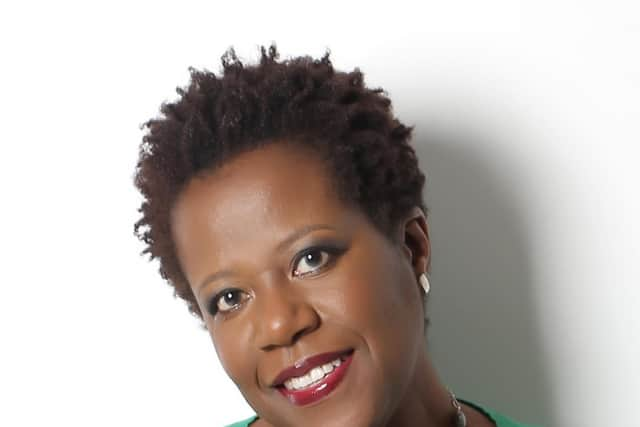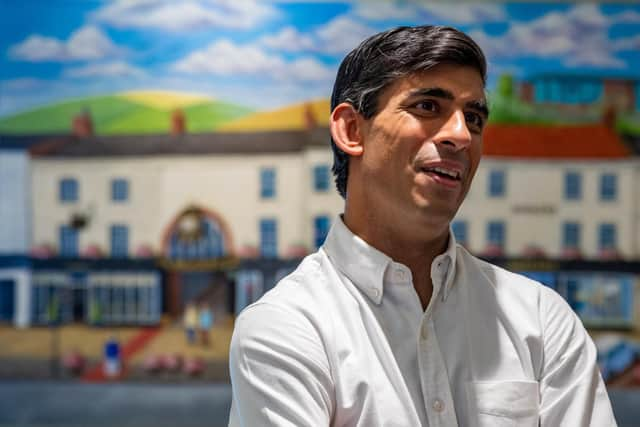'Stop using BAME to describe ethnic minorities'
and live on Freeview channel 276
He responded that there were a host of people from a Black and minority ethnic background, citing the Chancellor of the Exchequer and the Home Secretary to name but two (both of whom are Asian NOT Black).
The term BAME is a catch-all abbreviation that is used for people who are Black, Asian, and Minority Ethnic. Minority ethnic encapsulating all those people considered ethnic minorities who do not fall within the categories Black or Asian. This can include White people who are not British. An acquaintance who is of Latin American origin told me she does not feel included in the term, and initially had not even realised that she was.
Advertisement
Hide AdAdvertisement
Hide AdThe term is often used when describing ethnic minorities, in research carried out to try and understand population patterns and when reporting data. But the problem with grouping all ethnic minorities under the same umbrella leaves the door open for misrepresentation and in the case of Matt Hancock, not truly having a handle on the inequalities that exist.


The Cabinet Office itself states it does not support using the term BAME. In fact, their communication style guide says not to use the umbrella categorisation of BAME or BME when writing about ethnic minorities.
However, the term still appears on the gov.uk website and is used by various Government departments. We regularly see Government representatives in the media using these terms, and see it used in Government reports. Not only that, we also see other institutions and organisations using it, probably take their stance from the Government’s use of it.
The problem with using this catch-all term is that different minority groups face different issues, challenges and have different needs. Plus, each group has a different lived experience. As was seen in the situation with Health Secretary Matt Hancock described above, lumping them together under one category can mask inequality.
Advertisement
Hide AdAdvertisement
Hide AdHiding behind the umbrella term BAME can give a false indication of progress when it comes to racial equality. For example, last year Oxford University (which has historically been criticised for the low numbers of ethnic minority students) reported that the admissions figure for BAME students was 22%, an increase on the previous year. Whereas digging deeper, the admissions figure for Black students was only 3.1%.


The term BAME does not help in the quest to root out systemic racism. Having one category that is for everyone who is not White places whiteness as the default, making White the norm and everybody else ‘other.’
The term is said to have derived from the recognition in the 60s and 70s that there were other minority groups in the UK other than Black. Initially the term BME was used (Black and Minority Ethnic) but evolved to BAME in recognition of the need to represent people of Asian origin. This in itself is problematic because the word Asia is used to describe people of Asian origin, but Black used to describe those of African and Caribbean origin.
Whilst being able to identify individual groups of people to assess their needs, experiences and so on can be helpful, lumping them all together under one category is not.
Advertisement
Hide AdAdvertisement
Hide AdAsking the groups concerned what they want to be known as and describing each group individually would be fairer and allow for a more targeted approach in order to address inequality. It would give a more accurate picture of the experience of ethnic minorities in this country.
Some people use the term because they feel uncomfortable describing someone Black. Or they think that calling someone Black is not the right thing to do and that it might offend. However, I personally do not like being called BAME and would rather be called Black, as would many other Black people I know.
Likewise, Asian friends would rather be referred to as Asian (or better still by their country of origin because the term Asian is so broad). And so would those of other minority groups such as Latin American.
In June of this year, a petition application was submitted to the Parliament petitions website asking the Government to stop using the term BAME or BME to describe ethnic minorities. It was initially refused on the basis that the Government does not use the term.
Advertisement
Hide AdAdvertisement
Hide AdHowever, when it was pointed out that despite the Cabinet Office style guide saying the term should not be used, and that it is used on the gov.uk website, an appeal was allowed and the petition was subsequently approved.
The petition asks that the Government not just talk the talk but that they walk it as well. It requests that they stop using the umbrella term BAME or BME when writing about ethnic minorities.
Minority groups should have their own individual categorisation, agreed through consultation with the groups concerned.
Maybe once the Government walks its talk and stops using BAME, other institutions and organisations will follow suit. Then perhaps reporting of data will give a more accurate picture of the state of play regarding race.
Advertisement
Hide AdAdvertisement
Hide AdIf you want to sign the petition, go to petition.parliament.uk/petitions/329073.
Thank you to all who support local journalism with a print subscription. The events of 2020 mean trusted, local journalism is more reliant than ever on your support. We couldn't do it without you. Please subscribe here https://www.localsubsplus.co.uk/ so we can keep campaigning on your behalf. Stay safe.